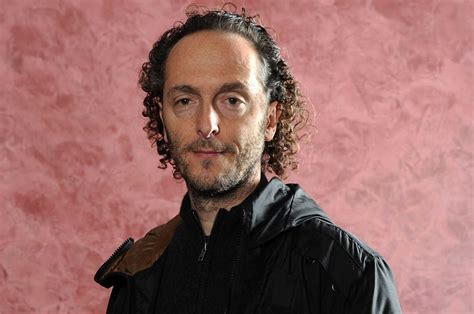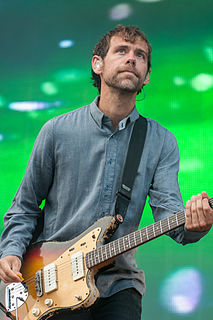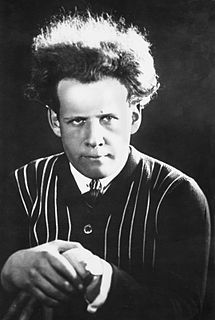A Quote by Emmanuel Lubezki
The language of film is further and further away from the language of theater, and is closer to music. It’s abstract but still narrative. Everything feels less rehearsed. It’s more experimental than classical.
Related Quotes
The politics of language and the politics of writing really got to me. I've heard this phrase more than once now: this idea of the poetry wars, or the idea that people within the space of writing are at odds with one another or manipulating language to further one's political stance, manipulating language in ways that really felt dirty to me. All of these things worked their way into and through language for me.
We wanted to create an opportunity for people to share anything, on their own terms, revenue and all. Get away from the commerce side of music, which can be exciting and necessary but ultimately dilutes the creative impulse. The further and further you go down that path is sometimes the further you are from the reason why you started making music.
Religion is much more than language, but to be Christian does mean speaking Christian for most people. The language many of us use has contributed to the crisis in Christianity in North America. Traditional Christian language is becoming less familiar to millions of people. The language is frequently misunderstood by people.
Music can move us to the heights or depths of emotion. It can persuade us to buy something, or remind us of our first date. It can lift us out of depression when nothing else can. It can get us dancing to its beat. But the power of music goes much, much further. Indeed, music occupies more areas of our brain than language does-humans are a musical species.
80-percent of 'Enter the Void' is a traditional narrative movie. I suppose it's more similar to 'Jacob's Ladder' or 'Videodrome' than it is to 'Inauguration of the Pleasure Dome' by Kenneth Anger, which is very experimental. It's the other 10% of 20% that reminds you of the language and glamour of dreams.
In Europe there's kind of a reaction to the European Union, kind of a move towards some kind of regionalization. It's more advanced in some regions than others, like in Spain for example. Catelan was repressed under Franco. People spoke it, but not publicly. It's now the language of Catelonia. The Basque language is being revived, not just the language but the culture, the folk music and everything else. So you're getting more diverse societies, and it's happening in Britain as well.





































